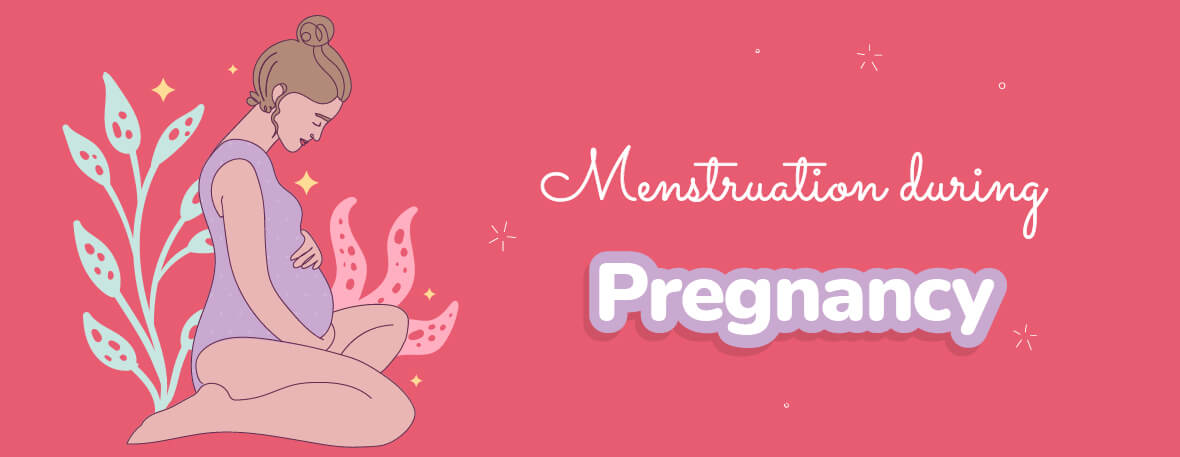 Store
StoreRECOMMENDED PRODUCT
Uva Menstrual Cup
Ultra-soft silicone for your comfort and peace of mind.
$29.99

 How to use the cup
How to use the cup- FAQ
- Blog
 Store
StoreRECOMMENDED PRODUCT
Uva Menstrual Cup
Ultra-soft silicone for your comfort and peace of mind.
$29.99

 How to use the cup
How to use the cup- FAQ
- Blog

Period During Pregnancy
During pregnancy, a woman’s body goes through different changes. One of the best known is; The absence of a period; Which means that when we see some type of bleeding; we think that our period is coming and that there is something wrong with the baby. There are times when a woman may experience spotting (not regular bleeding) or browm periods. This can happen in the first months of pregnancy and is usually due to implantation bleeding. Adhesion of the embryonic sac can result in the rupture of small blood vessels. But we reiterate that the bleeding should be minimal. When having any type of bleeding, it is necessary to consult with a gynecologist.
Brown menstruation during pregnancy is a phenomenon that can cause concern for future mothers. Understanding its causes and possible implications is essential to handle this situation with knowledge and serenity. Throughout this article; we will explore in detail what the appearance of this type of bleeding means and how it should be addressed from a medical and emotional perspective.
It is important to note that; although it may be common, any change in bleeding pattern during pregnancy should be discussed with a health professional. With a combination of expert analysis and practical advice. We aim to provide you with the most relevant and up to date information on brown periods in pregnancy.
Brown Menstruation in Pregnancy?
Brown menstruation during pregnancy can be indicative of different situations. The brown color is usually because blood has been slow to leave the uterus; causing it to oxidize and change color. However, it is crucial to understand that it is not always a sign of a serious problem.
In the early stages of pregnancy; it can be a sign of implantation, when the fertilized egg attaches to the uterine wall. This process may cause slight bleeding or spotting, which is usually light brown and should not cause alarm. On the other hand. It can also be an indication of hormonal changes that are occurring in the body to support the development of the baby.
Brown periods can sometimes be a warning sign of conditions that require medical attention; such as an ectopic pregnancy or miscarriage. For this reason, it is essential that any abnormal bleeding be evaluated by a doctor. Open and regular communication with your healthcare provider is the best way to monitor your health and the health of your baby during pregnancy.
Common Causes of Brown Menstruation
Some of the most common causes of brown periods in pregnancy include:
- Implantation: As mentioned above, implantation bleeding can occur when the embryo implants in the uterus.
- Cervical changes: The cervix may become more tender and bleed easily, especially after a pelvic exam or sexual intercourse.
- Infections: Genital tract infections can also cause brown bleeding. It is essential to treat any infection during pregnancy to avoid complications.
- Subchorionic Hematoma: This is a collection of blood between the placenta and the uterine wall that can sometimes cause brown bleeding.
Pregnant women must maintain constant communication with their doctor. To identify the cause of the bleeding and receive appropriate treatment if necessary.
Management and Prevention of periods in your pregnancy
Management of periods in pregnancy depends on their underlying cause. Here are some general recommendations:
- Follow up regularly with your doctor and report any changes or symptoms you experience.
- Avoid strenuous physical activities if you notice abnormal bleeding, and consult your doctor for personalized recommendations.
- Maintain good personal hygiene and follow your doctor’s instructions to prevent or treat infections.
- Adequate rest is essential. Make sure you get enough rest and avoid stress as much as possible.
In summary; while brown periods during pregnancy can be a worrying experience, in most cases, there is no cause for alarm. However; it should always be evaluated by a health professional to rule out any problems and ensure the well-being of both mother and baby.
With all these considerations in mind. We hope that this article has provided you with clear and useful information about brown periods during pregnancy. Remember, if you have any questions or concerns, the best action is to consult with your doctor.











